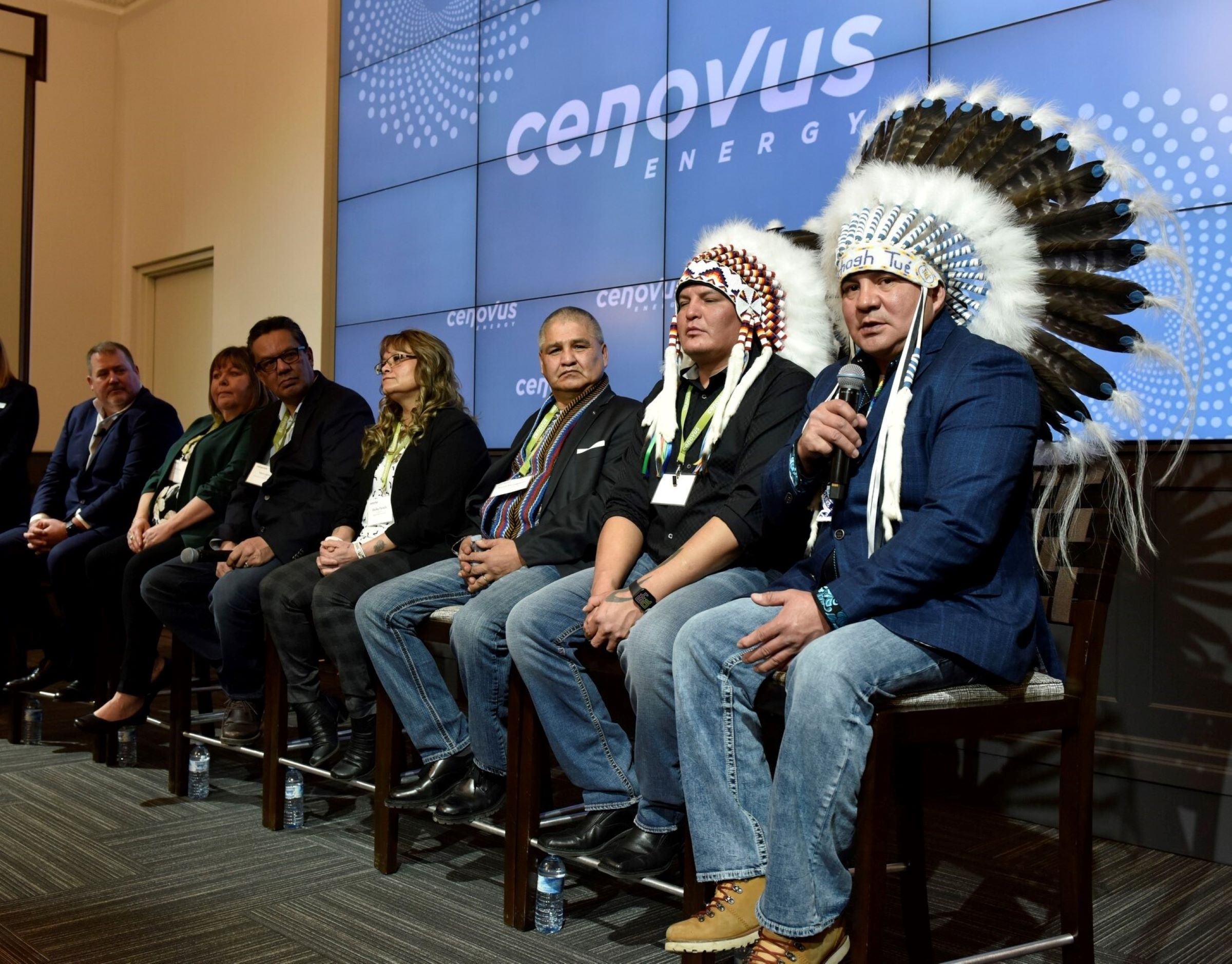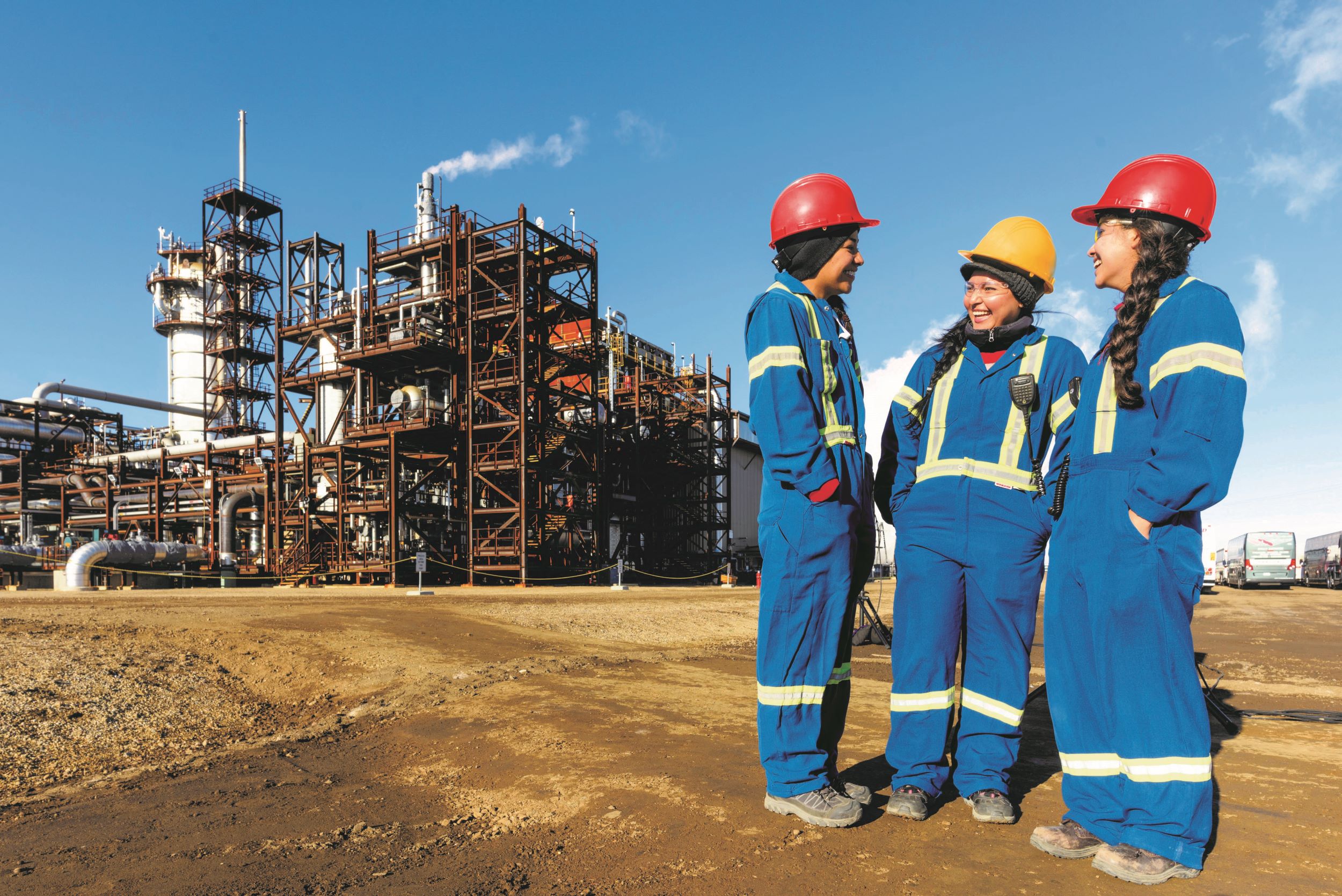Canada’s oil and natural gas industry respects the unique rights of indigenous peoples and continues to make great strides toward learning, developing relationships based on trust, and sharing benefits from resource development. The industry acknowledges the importance of Indigenous reconciliation in Canada and believes natural resource development can play a role in the broader Canadian reconciliation process.
The industry plays a significant role in advancing “economic reconciliation” — identifying feasible ways to include Indigenous peoples in economic opportunities arising from resource development. Economic reconciliation enables prosperity and resilience, supporting Indigenous self-determination and community priorities such as economic development, education and training, health and wellness services, and cultural preservation.
The industry works with Indigenous communities, organizations, and businesses in a variety of ways to meaningfully engage and to share in the economic opportunities from oil and natural gas development. These include consultation, procurement (buying goods and services), equity partnerships, consultation capacity funding, business and other agreements, community investment, training and skills development, and employment.
Economic opportunities are only one part of industry’s engagement with Indigenous peoples. For example, the industry acknowledges the strong role traditional Indigenous knowledge can play in environmental management.
For more information about Indigenous reconciliation, see the Government of Canada website, and Reconciliation Canada.
In 2021, CAPP issued a major report about Indigenous engagement with the oil and natural gas industry.
How Indigenous communities play a role in our industry
Indigenous peoples are employed in the oil and natural gas industry in different ways, including direct jobs and through Indigenous-owned companies that provide products and services to the industry. Indigenous participation in the industry has increased over the years, as the industry offers well-paying jobs and opportunities for Indigenous peoples to work near their communities. In 2019, approximately 13,900 self-identified Indigenous persons were directly employed in Canada’s oil and natural gas industry, an increase of 26%, or 2,900 positions, from 2014. For comparison, Indigenous people make up about 3.3% of Canada’s total workforce. Canada’s 2021 census showed that the extractive resource sectors, and the oil and natural gas sector specifically, provide the highest paying average wages for Indigenous workers in Canada.
Community investment is one important aspect of the industry’s relationship with Indigenous communities. Through community investment, operators can support social and cultural priorities, enhance skills training, or help to meet infrastructure needs.
Industry spending by type of Indigenous businesses
This is how much the oil and natural gas industry has spent to purchase goods and services from Indigenous businesses
- Construction – $1.4 billion
- Equipment services and maintenance – $992 million
- Transportation – $639 million
- Camps / catering, potable and wastewater – $1.4 billion
- Business services – $352 million
- Materials, parts, supplies – $244 million
- Drilling, completion, downhole services – $244 million
- Environmental / industrial waste – $273 million
- Health / safety services and materials – $158 million
- Other – $189 million
Indigenous organizations
CAPP is associated with Indigenous organizations that help to create relationships between the oil and natural gas industry and Indigenous peoples and communities:
- Indigenous Resource Network (IRN) – advocates for fair and appropriate inclusion of Indigenous peoples in resource projects that take place on traditional territories, including as workers, contractors, partners and equity owners.
- Indigenous Works – an Indigenous-led organization supported by fees from a community of Employer Partners to support training and consulting services, advanced research with public, private and research agency funding to address challenges and create Indigenous inclusion solutions.
- Indian Resource Council (IRC) – advocates for First Nation involvement in sustainable resource development.
- First Nations Major Projects Coalition (FNMPC) – a national collective group of First Nations, to advance shared interests of participating, and where appropriate gaining equity positions in the major projects taking place in their territories.
- First Nations LNG Alliance – formed to provide information and support to First Nations interested in LNG and natural gas projects.


